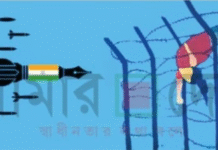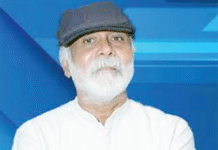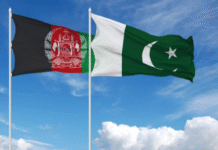
On 9 September 2025, all eyes were on Dhaka University as its central students’ union (Ducsu) election took place for only the second time in 35 years. The festive event was soon followed by elections in other major public universities — Jahangirnagar University (Jucsu), Chittagong University (Cucsu), and Rajshahi University (Rucsu).
Long deprived of voting rights, people expected the student union elections to mark the beginning of a democratic revival. However, allegations of mismanagement, ballot irregularities and administrative bias have cast shadows over the celebration.
The pattern of allegations is strikingly similar: unsecured ballot papers, use of unauthorised printing presses, unsigned ballots, mismatched vote counts, indelible ink failing to work, and presence of outsiders around polling centres.
What is most concerning is that these incidents are not occurring in remote corners of the country — they are taking place inside universities. The voters are students, the most educated segment of the youth population, and the administrators are teachers, responsible for upholding the values of fairness and critical inquiry.
History repeating itself, three times in a row
After decades of dormancy, these elections were revived with fanfare. Ducsu returned after 28 years in 2019 and again got discontinued till 2025. Jucsu took place after 33 years, Cucsu after 36 years, and Rucsu after a 35-year-long hiatus. Each was hailed as a milestone in re-energising student politics and bringing accountability to campus governance.
But as soon as ballots were cast, irregularities began to dominate the narrative.
At Ducsu, student leaders alleged that ballot papers were unlawfully printed in unauthorised presses in Nilkhet, raising fears of rigging.
Then at Cucsu, students discovered unsigned ballots and complained about the absence of indelible ink, leaving room for repeat voting.
At Jucsu, opposition panels claimed that a blueprint had been drawn up to benefit a specific student group.
And Rucsu, too, faced allegations that indelible ink failed to work and unsigned ballot papers were found on polling day.
The most emblematic example of mismanagement remains the “Nilkhet ballot” incident during Ducsu’s election.
You might accept such shortcomings when it comes to Ducsu. But once these problems happened at Dhaka University, the other three universities’ authorities should have realised their significance and thought about how to address them in the future. But there seems to have been no such reflection, as the issues have remained more or less the same.
Independent candidates revealed that some 48,000 ballot papers were printed at local presses in Nilkhet — unsecured, unsupervised and outside the official tender process.
At first, the authorities denied such a claim. But investigations later confirmed that thousands of ballots were indeed printed without following proper procedures. Press owners and the officially contracted company offered contradictory accounts.
The university election commission insisted the election was “free and fair” and promised to review the allegations. But for many students, the damage was already done. “If Ducsu cannot even ensure secured ballots, then where can we place our trust?” a candidate asked after the election.
At Jucsu, controversies erupted even before polling day.
Contesting panels, including BNP-aligned student groups and left platforms, alleged that ballot papers were procured through a printing firm linked to a particular political party. They argued this compromised neutrality from the outset.
On polling day, reports surfaced of outsiders loitering around centres, campaigners obstructing voters near booths, and “vote guidance” by a certain student organisation’s activists inside the 100-yard restricted zone.
There were cases of voter lists not having identification photos. The extra ballot papers also created much controversy, leading to half of the contesting panels boycotting the election midway. Two election commissioners at Jucsu stepped down, alleging that the commission continued vote counting without addressing complaints raised during the election.
The university authorities dismissed the allegations as “baseless” but never gave a transparent account of the procurement and distribution of ballots. The vote count took hours, and the sheer mismanagement baffled the observers.
The long-awaited Cucsu election was celebrated as a return of campus democracy after more than three decades.
But the festive mood faded quickly when voters discovered ballot papers without signatures at some centres. Several panels, including those backed by Islami Chhatra Shibir and Jatiyatabadi Chhatra Dal, alleged that the absence of indelible ink allowed repeat voting.
The Cucsu chief election commissioner acknowledged that unsigned ballots had been found and marked separately but downplayed the issue as a “minor error”.
Security arrangements on campus were visible, but administrative preparedness lagged behind. Students complained of long queues, late opening of polling booths and poor management of voter rolls.
Meanwhile, Rucsu’s election saw some of the most chaotic scenes.
Students alleged that outsiders entered polling centres and intimidated voters throughout the day. At least 150 pre-signed ballot papers were found. The ink got removed easily.
Even more alarming were the allegations of mismatched vote counts in Ducsu and Jucsu, where several candidates claimed that the total votes they received across the halls did not match the final results. Despite repeated demands, the authorities refused to release the CCTV footage.
A pattern of systemic mismanagement
Dr Asif Shahan, professor at the Department of Development Studies, University of Dhaka, believes that the election commissions were not well prepared.
“They didn’t do the necessary homework in advance to anticipate what kinds of consequences or problems might arise. I think that is the number one issue,” he said.
“But what’s even more interesting is: you might accept such shortcomings when it comes to Ducsu. But once these problems happened at Dhaka University, the other three university authorities should have realised their significance and thought about how to address them in the future. Yet, there seems to have been no such reflection, as the issues have remained more or less the same,” he noted.
The attitude can be summed up by the comment of Rajshahi University Vice-Chancellor Professor Saleh Hasan Naqib, who said, “It seems this has become a universal talking point. Our election commission bought the best-quality ink after verification. Our officials also tested it — it didn’t erase. If someone rubs it immediately after applying, some colour may fade, but once it dries, it cannot be wiped off.”
Asif Shahan said, “I also sense a lack of intention to fix things. It’s as if they’ve slipped into a state of denial. If they had simply acknowledged, ‘Yes, this was a mistake,’ I believe everyone would have responded more gently, more constructively. It would have opened the door to finding solutions. But when you go into denial, you’re refusing to even acknowledge the problem.”
Source: https://www.tbsnews.net/features/panorama/student-union-polls-can-denials-alone-erase-allegations-mismanagement-1263086









